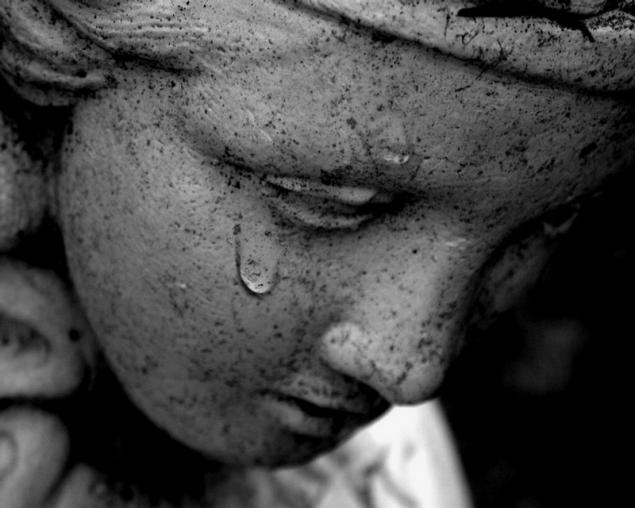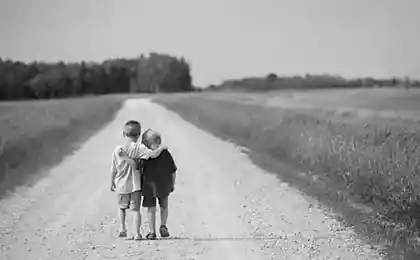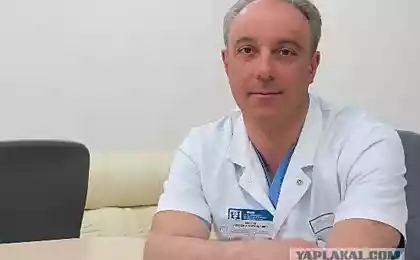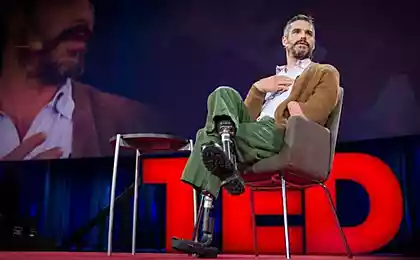467
In contact with a dying loved ones. The rights and obligations of the parties
Palliative care patients are people with terminal stages of diseases that are not treated who have no hope of recovery. These patients is called palliative medical care, aimed at maintaining so the highest quality of life as possible at such stages of the disease, to facilitate the occurrence of various symptoms and to facilitate receipt of death itself.
Understandable that in a situation of a person of severe disease the entire focus of attention of doctors, specialists, relatives sent directly to the patient, the organization of his life and life around him, for his treatment and other types of assistance. We decided to shift the focus and talk about the psychological help and support those people who needs it not less in the situation of caring for a hopelessly sick man — his relatives and friends.

These are people who will need to live on after the loss of a loved one, to reconcile, to find new meanings, to survive grief and loss. It is people, which often self-disclosure is close and finding him in a very difficult contact until the end of human life.
These are people who need to organize hard everyday patient care, while continuing to live their usual life, with work, children, parents, other loved ones urgent matters and plans, desires, hopes and dreams, their space. People who are experiencing many conflicting and difficult feelings associated with the situation of severe illness close. These are people who sometimes do not who these your feelings to share, and can be uncomfortable and can be embarrassing. These are people who need support.
My search for a psychologist to interview the person who is engaged in the help to relatives of palliative patients in itself was very valuable and gave the first answers to the questions of the topic — what is and what support is needed friends of the dying person.
I turned to one skilled in the art that almost every day deals with palliative patients and their relatives, asking them to give me an interview on the topic we are discussing. Specialist very kindly and gently refused, explaining that decided the interview is temporarily unable to give, because it takes a long time, and, in fact, every time you have to repeat almost the same thing.
I think that sent a very good and healthy example of how important it is to maintain your boundaries, know your limits and allow yourself this limit to protect the resource and to retain the right for themselves and their choices. This is especially important in the field of helping professions when we give a powerful part of our energy outward to others.
To continue to help, we should have a domestic source, the stock from which we actually can help. In this case, our liability will be to the resource to accumulate. I think the relatives and loved ones who are in daily contact with a palliative patient, it is very difficult to accumulate such a resource and to retain the right to a small rest, some of their privacy and their boundaries.
First, it is really difficult to do in reality when a dying person, for example, needs round the clock supervision. Secondly, even if the family can somehow be distributed in shifts in patient care, then they often there are many feelings of guilt for wanting to get a slice of your personal life and to live, when there is a dying man. Being properly and always everything to prevent myself from something personal and private feelings such a life often begins among those who are in close contact with seriously ill loved ones.
The reasoning above is devoted to only one aspect of supporting people who are in a relationship with a dying man. Read more about this and other important issues that families and loved ones need help, we have an interview with Gestalt therapist, Oksana Orlova.
First the question itself is difficult, and the debate around it being a long time whether to inform palliative patient about the diagnosis and about for making heavy term illness?
Very often relatives believe that diagnosis is better not to report: if a person learns the truth, he breaks down, will go back, get depressed. But in most cases the patient on his own the symptoms still realize that with him there is something serious, he sees that withers, but does not understand the situation, in the absence of complete information, nor why he so badly physically, and it increases anxiety. The decision not to report the diagnosis — understandable. Fear of collision with other people's experiences is the care and from their experiences too.
Relatives are often afraid not to cope with their feelings or the feelings of a dying close. But still, I believe it is important to know what it is and how much time he has left. It is important that he was able to make the most of this time in his own way: to do something, complete some business, relationships or on the contrary to restore any connection, in other words, to say goodbye to life as he sees fit. Still has the right to survive and to survive his death, to depressed, to deny, to grieve, to pass its momentum experiences. It also has to be a process with a beginning and an end. I don't think someone has the right to deprive a person of this possibility.
— There are cases when really it would be better if people didn't know about the diagnosis? Maybe this applies to situations where people much older or do not adequately aware of the reality, being in a confused state of consciousness? Or when the diagnosis is all of a sudden?
— I think that right know you need to give to anyone. If the patient is not really awake, he just won't accept the information. People that sick for a long time, somewhere deep still already understands everything and is ready to take information. In such cases, if you are silent relatives, patients begin to question doctors, nurses.
If the diagnosis is made suddenly, the situation becomes more complicated in terms of readiness, but the question is, as information to present and how to recycle it. If you have the opportunity to speak, to understand the situation in the dialogue with loved ones or alone, then it's worth it. I see that hiding the diagnosis will be very hard to live patients.
— How You consider, who must inform the person about the diagnosis — the doctor or the relatives?
— I think a doctor. A good doctor establishes good contact with the relatives and the patient. To report the diagnosis, he may in the presence of loved ones. But, unfortunately, doctors often explained avoiding the heavy conversations and clashes with strong emotions, or just write the diagnosis on paper in the patient's chart, and he finds out about it all alone, or delegate that responsibility to relatives.
— I think now we're getting to the very important question of how and in what form to inform the person about the diagnosis? I understand that this is not one sentence and not one conversation. This is probably the dialogue until the moment of departure of the person: once verbally, once silent. As these conversations build?
— I think in this conversation and conversations it is important to maintain in the other person feeling that he respect that it is valuable, and its value to you does not decrease. You give him the facts, based on trust. It is important to recognize what you are saying hard things, but have great respect for the man, I understand that for him the important truth and clarity and that you have the right to tell the truth and to clarify it. Believe in its power, worry, ready to help at different stages.
— I have met with situations where the dying person has accepted the fact of death is easier than his friends and relatives. How to interact with each other in this situation?
— Yes, such situations are very common and are associated with the dynamics of grief, in this case, relatives who clearly are in denial of loss and resist the upcoming loss. Indeed, it happens that the man himself agrees with the fact of disease, took it, and the relatives drag him to the doctors and say no, you have to be cured by traditional or nontraditional methods.
This situation is complicated by the fact that there is an open "dialogue" between family and patient — they did not grieve together, their feelings and emotions become mixed. People become afraid to hurt each other's feelings, stop talking about the situation, as they have a different attitude to it and no understanding, and as a result, everyone is alone with their feelings.
— With what feelings and experiences of the family you mainly face in your work?
— First, a feeling of guilt. I note that the psychological groups experience the loss of relatives is always very important to say that they have done everything possible, gone to all the doctors. They have a lot to share these with each other. Also usually is not accepted easily by the ambivalence of his own feelings (that is, the fact that the feelings are different, sometimes opposite, but there are experienced in parallel, at the same time — approx. ed.), in particular a natural feeling of anger towards the departing man.
Loved ones begin to shoot all of their needs and experiences, arguing that they are nothing in comparison with the experiences of the patient. Relatives limit themselves in meetings with friends, hikes somewhere in the "square meters" of personal space and totally dedicate myself to dying, as a result, frustrated at him because of the surge and blame himself even more, trying to atone for greater attention to the patient and again thwarted. So the buildup is formed a vicious circle.
It is important to convince the relatives that they are alive and need to support yourself, to help close. To convince that they are entitled to, literally, take a bath and somewhere to go, assigning responsibility for the care of the dying with each other. It is important to support loved ones that they are entitled to their own different feelings and have the right to share them with the outgoing person. They have the right to communicate with the dying, discussing with them their experiences and grievances, making the most of it dead beforehand.
It is not necessary to shut off the live energy, to gloss over the negative and cry only "beyond the door", it is always possible to find appropriate, acceptable and respectful expression of feelings. Together to grieve, to cry, to laugh, to remember the situation when people live together, worried and grief — it is better than if everyone will leave their feelings at the door and will remain with them alone. Better than if the energy accommodation will crash and stop. By the way, often, this period can become a new stage in the relationship — sometimes only now people learn really deep to talk to each other.
— I would like to ask you another important question, which can also face the relatives of the outgoing person — how to inform the child about the death of a close person?
— I think there is just as important to give the child to proveravati and otherevery loss on available level. For example, if you explain the very small child who is not aware of the metaphors and takes everything literally which is that someone very close to him in another place that he good he in heaven, that he is an angel, the child can literally watch the sky and wait for the arrival of this man. It turns out that pity party in this case does not occur, it is only postponed.
The General theme of death becomes relevant for children only 5-6 years of age. It is believed that all experiences of the child, associated with death, displaced. The children have no experience of loss, and it is important that information child reported fairly stable, not ruined their feelings of loss people with a stable position in relation to the death of a relative. The child in this case will resonate to what he says and how.
If, for example, information will be filed in hysterics, and the child will feel the horror of what is happening in the soul of the adult, it is, of course, reinforce and exacerbate children's feelings. If reported by the adult, quite stoically accepted the fact of loss, the child will feel calmer. It is also important that an adult could take children's feelings, not to get away from them to get in contact with them and thereby to help the child through it.
Probably it is important that the child, if possible, were some tangible signs of life outgoing person record the video. Well, if the child will be able to be in contact with a dying person — to somehow communicate. This experience less traumatic, the child will remain a feeling that the situation he somehow controls it and is not just a passive victim. It is desirable that the child saw the place where the "left" people — attended the funeral or at the Wake, otherwise it can be a feeling of disturbing uncertainty, which is likely to result in different stress disturbing fantasies later.
But the cases are very different, and each must be discussed separately. For example, I worked with the case when the adults have fallen into the extreme and made the kid at the funeral to kiss a dead man. After that, the child stopped eating, sleeping and fell into a very strong stress. Of course, in such situations, to show the horrors and contribute actively to include children is not worth it, you have to go to extremes not to be.
What is important to understand that in any case the experience of loss will be traumatic for a child. We can do something to somehow smooth out, but still the fact of the loss of the child will need to receive and process. Still, it is important that children, seeing other people's emotions, able to share with them, to join them. Importantly, the experience of the child did not stop. A collision with such a difficult but life experience shapes the volume of the soul, the ability to sympathize with others and to suffer most, to live their feelings. published

Interviewed Ksenia Talbina
P. S. And remember, just changing your mind - together we change the world! ©
Source: www.matrony.ru/v-kontakte-s-umirayushhim-blizkim-prava-i-obyazannosti-storon/
Understandable that in a situation of a person of severe disease the entire focus of attention of doctors, specialists, relatives sent directly to the patient, the organization of his life and life around him, for his treatment and other types of assistance. We decided to shift the focus and talk about the psychological help and support those people who needs it not less in the situation of caring for a hopelessly sick man — his relatives and friends.

These are people who will need to live on after the loss of a loved one, to reconcile, to find new meanings, to survive grief and loss. It is people, which often self-disclosure is close and finding him in a very difficult contact until the end of human life.
These are people who need to organize hard everyday patient care, while continuing to live their usual life, with work, children, parents, other loved ones urgent matters and plans, desires, hopes and dreams, their space. People who are experiencing many conflicting and difficult feelings associated with the situation of severe illness close. These are people who sometimes do not who these your feelings to share, and can be uncomfortable and can be embarrassing. These are people who need support.
My search for a psychologist to interview the person who is engaged in the help to relatives of palliative patients in itself was very valuable and gave the first answers to the questions of the topic — what is and what support is needed friends of the dying person.
I turned to one skilled in the art that almost every day deals with palliative patients and their relatives, asking them to give me an interview on the topic we are discussing. Specialist very kindly and gently refused, explaining that decided the interview is temporarily unable to give, because it takes a long time, and, in fact, every time you have to repeat almost the same thing.
I think that sent a very good and healthy example of how important it is to maintain your boundaries, know your limits and allow yourself this limit to protect the resource and to retain the right for themselves and their choices. This is especially important in the field of helping professions when we give a powerful part of our energy outward to others.
To continue to help, we should have a domestic source, the stock from which we actually can help. In this case, our liability will be to the resource to accumulate. I think the relatives and loved ones who are in daily contact with a palliative patient, it is very difficult to accumulate such a resource and to retain the right to a small rest, some of their privacy and their boundaries.
First, it is really difficult to do in reality when a dying person, for example, needs round the clock supervision. Secondly, even if the family can somehow be distributed in shifts in patient care, then they often there are many feelings of guilt for wanting to get a slice of your personal life and to live, when there is a dying man. Being properly and always everything to prevent myself from something personal and private feelings such a life often begins among those who are in close contact with seriously ill loved ones.
The reasoning above is devoted to only one aspect of supporting people who are in a relationship with a dying man. Read more about this and other important issues that families and loved ones need help, we have an interview with Gestalt therapist, Oksana Orlova.
First the question itself is difficult, and the debate around it being a long time whether to inform palliative patient about the diagnosis and about for making heavy term illness?
Very often relatives believe that diagnosis is better not to report: if a person learns the truth, he breaks down, will go back, get depressed. But in most cases the patient on his own the symptoms still realize that with him there is something serious, he sees that withers, but does not understand the situation, in the absence of complete information, nor why he so badly physically, and it increases anxiety. The decision not to report the diagnosis — understandable. Fear of collision with other people's experiences is the care and from their experiences too.
Relatives are often afraid not to cope with their feelings or the feelings of a dying close. But still, I believe it is important to know what it is and how much time he has left. It is important that he was able to make the most of this time in his own way: to do something, complete some business, relationships or on the contrary to restore any connection, in other words, to say goodbye to life as he sees fit. Still has the right to survive and to survive his death, to depressed, to deny, to grieve, to pass its momentum experiences. It also has to be a process with a beginning and an end. I don't think someone has the right to deprive a person of this possibility.
— There are cases when really it would be better if people didn't know about the diagnosis? Maybe this applies to situations where people much older or do not adequately aware of the reality, being in a confused state of consciousness? Or when the diagnosis is all of a sudden?
— I think that right know you need to give to anyone. If the patient is not really awake, he just won't accept the information. People that sick for a long time, somewhere deep still already understands everything and is ready to take information. In such cases, if you are silent relatives, patients begin to question doctors, nurses.
If the diagnosis is made suddenly, the situation becomes more complicated in terms of readiness, but the question is, as information to present and how to recycle it. If you have the opportunity to speak, to understand the situation in the dialogue with loved ones or alone, then it's worth it. I see that hiding the diagnosis will be very hard to live patients.
— How You consider, who must inform the person about the diagnosis — the doctor or the relatives?
— I think a doctor. A good doctor establishes good contact with the relatives and the patient. To report the diagnosis, he may in the presence of loved ones. But, unfortunately, doctors often explained avoiding the heavy conversations and clashes with strong emotions, or just write the diagnosis on paper in the patient's chart, and he finds out about it all alone, or delegate that responsibility to relatives.
— I think now we're getting to the very important question of how and in what form to inform the person about the diagnosis? I understand that this is not one sentence and not one conversation. This is probably the dialogue until the moment of departure of the person: once verbally, once silent. As these conversations build?
— I think in this conversation and conversations it is important to maintain in the other person feeling that he respect that it is valuable, and its value to you does not decrease. You give him the facts, based on trust. It is important to recognize what you are saying hard things, but have great respect for the man, I understand that for him the important truth and clarity and that you have the right to tell the truth and to clarify it. Believe in its power, worry, ready to help at different stages.
— I have met with situations where the dying person has accepted the fact of death is easier than his friends and relatives. How to interact with each other in this situation?
— Yes, such situations are very common and are associated with the dynamics of grief, in this case, relatives who clearly are in denial of loss and resist the upcoming loss. Indeed, it happens that the man himself agrees with the fact of disease, took it, and the relatives drag him to the doctors and say no, you have to be cured by traditional or nontraditional methods.
This situation is complicated by the fact that there is an open "dialogue" between family and patient — they did not grieve together, their feelings and emotions become mixed. People become afraid to hurt each other's feelings, stop talking about the situation, as they have a different attitude to it and no understanding, and as a result, everyone is alone with their feelings.
— With what feelings and experiences of the family you mainly face in your work?
— First, a feeling of guilt. I note that the psychological groups experience the loss of relatives is always very important to say that they have done everything possible, gone to all the doctors. They have a lot to share these with each other. Also usually is not accepted easily by the ambivalence of his own feelings (that is, the fact that the feelings are different, sometimes opposite, but there are experienced in parallel, at the same time — approx. ed.), in particular a natural feeling of anger towards the departing man.
Loved ones begin to shoot all of their needs and experiences, arguing that they are nothing in comparison with the experiences of the patient. Relatives limit themselves in meetings with friends, hikes somewhere in the "square meters" of personal space and totally dedicate myself to dying, as a result, frustrated at him because of the surge and blame himself even more, trying to atone for greater attention to the patient and again thwarted. So the buildup is formed a vicious circle.
It is important to convince the relatives that they are alive and need to support yourself, to help close. To convince that they are entitled to, literally, take a bath and somewhere to go, assigning responsibility for the care of the dying with each other. It is important to support loved ones that they are entitled to their own different feelings and have the right to share them with the outgoing person. They have the right to communicate with the dying, discussing with them their experiences and grievances, making the most of it dead beforehand.
It is not necessary to shut off the live energy, to gloss over the negative and cry only "beyond the door", it is always possible to find appropriate, acceptable and respectful expression of feelings. Together to grieve, to cry, to laugh, to remember the situation when people live together, worried and grief — it is better than if everyone will leave their feelings at the door and will remain with them alone. Better than if the energy accommodation will crash and stop. By the way, often, this period can become a new stage in the relationship — sometimes only now people learn really deep to talk to each other.
— I would like to ask you another important question, which can also face the relatives of the outgoing person — how to inform the child about the death of a close person?
— I think there is just as important to give the child to proveravati and otherevery loss on available level. For example, if you explain the very small child who is not aware of the metaphors and takes everything literally which is that someone very close to him in another place that he good he in heaven, that he is an angel, the child can literally watch the sky and wait for the arrival of this man. It turns out that pity party in this case does not occur, it is only postponed.
The General theme of death becomes relevant for children only 5-6 years of age. It is believed that all experiences of the child, associated with death, displaced. The children have no experience of loss, and it is important that information child reported fairly stable, not ruined their feelings of loss people with a stable position in relation to the death of a relative. The child in this case will resonate to what he says and how.
If, for example, information will be filed in hysterics, and the child will feel the horror of what is happening in the soul of the adult, it is, of course, reinforce and exacerbate children's feelings. If reported by the adult, quite stoically accepted the fact of loss, the child will feel calmer. It is also important that an adult could take children's feelings, not to get away from them to get in contact with them and thereby to help the child through it.
Probably it is important that the child, if possible, were some tangible signs of life outgoing person record the video. Well, if the child will be able to be in contact with a dying person — to somehow communicate. This experience less traumatic, the child will remain a feeling that the situation he somehow controls it and is not just a passive victim. It is desirable that the child saw the place where the "left" people — attended the funeral or at the Wake, otherwise it can be a feeling of disturbing uncertainty, which is likely to result in different stress disturbing fantasies later.
But the cases are very different, and each must be discussed separately. For example, I worked with the case when the adults have fallen into the extreme and made the kid at the funeral to kiss a dead man. After that, the child stopped eating, sleeping and fell into a very strong stress. Of course, in such situations, to show the horrors and contribute actively to include children is not worth it, you have to go to extremes not to be.
What is important to understand that in any case the experience of loss will be traumatic for a child. We can do something to somehow smooth out, but still the fact of the loss of the child will need to receive and process. Still, it is important that children, seeing other people's emotions, able to share with them, to join them. Importantly, the experience of the child did not stop. A collision with such a difficult but life experience shapes the volume of the soul, the ability to sympathize with others and to suffer most, to live their feelings. published

Interviewed Ksenia Talbina
P. S. And remember, just changing your mind - together we change the world! ©
Source: www.matrony.ru/v-kontakte-s-umirayushhim-blizkim-prava-i-obyazannosti-storon/
Electric self-balancing unicycle is the ideal transport for active citizens
How to learn persuasion: psychological techniques























